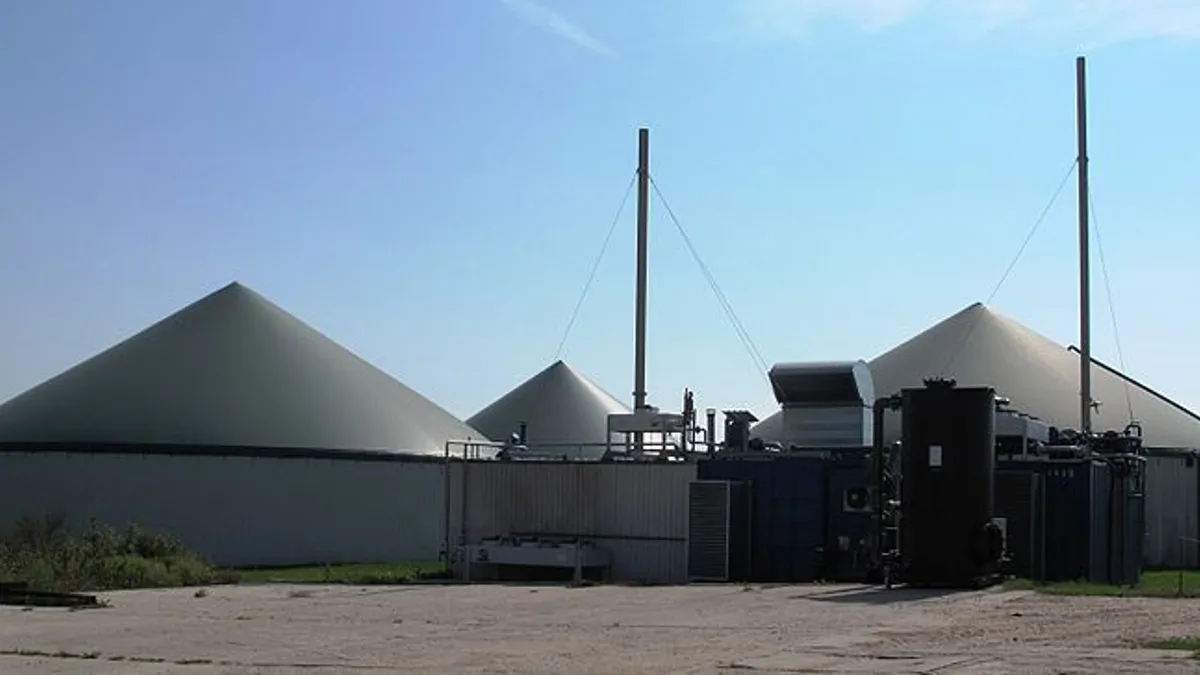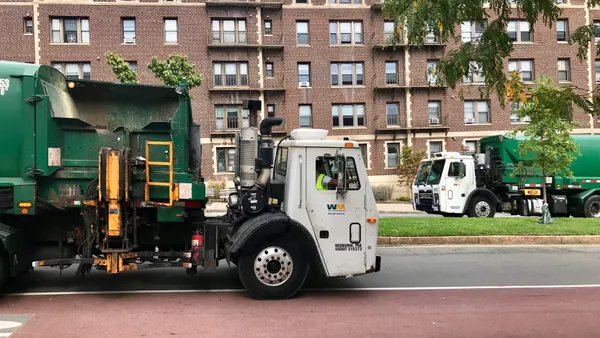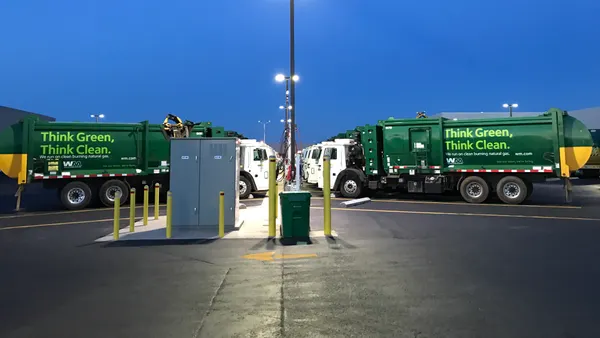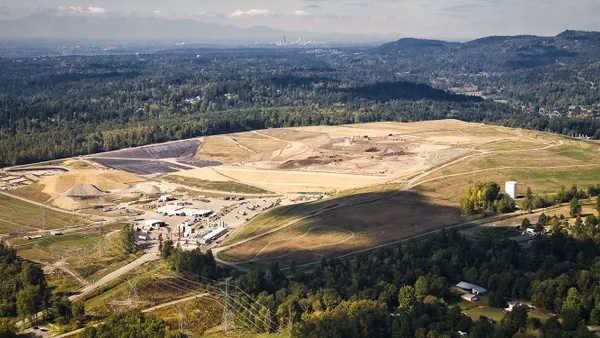Dive Brief:
- A session at the Global Waste Management Symposium included a panel of researchers who discussed their individual projects surrounding anaerobic digestors.
- An academic group from NC State University examined food waste and the role anaerobic digestion, waste-to-energy, composting and landfills play in the reduction of greenhouse gas emissions and fossil fuel usage.
- Stemming from the food ban in Massachusetts, an environmental consulting firm is conducting a pilot anaerobic digestion project, and is testing out different applications that could potentially be used: the digestate could be injected into the landfill itself, used as a replacement for water or added to compost.
- A researcher from CO State University is also studying hydrolysis seeding methods for anaerobic digestion. Such a water-conservation system would have value across many regions that are experiencing drought conditions.
Dive Insight:
Anaerobic digestion plants are being planned and built in response to a growing need to divert food waste from landfills. The statewide food ban in Massachusetts is prompting towns across the state to get moving on construction in time for the onset of the ban, which is slated to begin on October 1, 2014.













